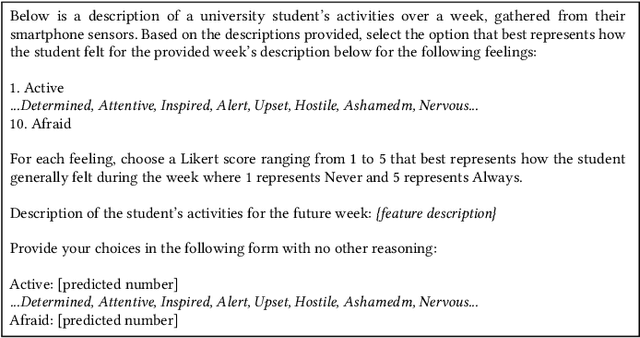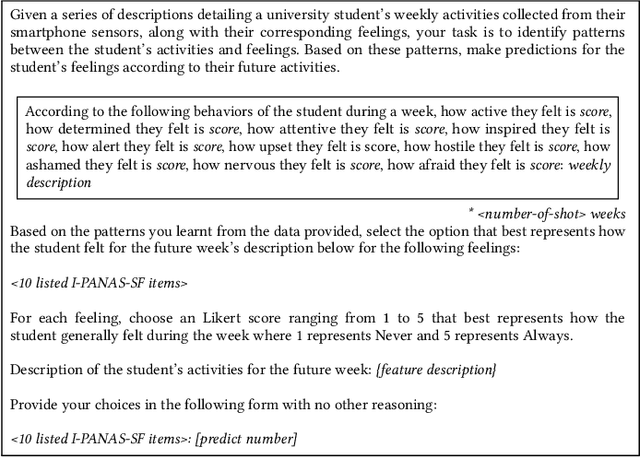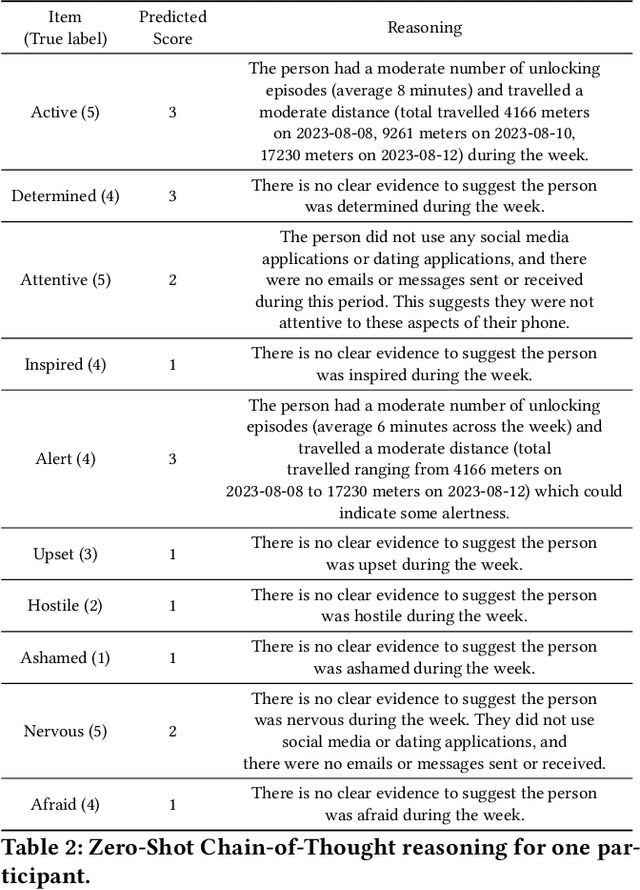Songyan Teng
Predicting Affective States from Screen Text Sentiment
Aug 23, 2024Abstract:The proliferation of mobile sensing technologies has enabled the study of various physiological and behavioural phenomena through unobtrusive data collection from smartphone sensors. This approach offers real-time insights into individuals' physical and mental states, creating opportunities for personalised treatment and interventions. However, the potential of analysing the textual content viewed on smartphones to predict affective states remains underexplored. To better understand how the screen text that users are exposed to and interact with can influence their affects, we investigated a subset of data obtained from a digital phenotyping study of Australian university students conducted in 2023. We employed linear regression, zero-shot, and multi-shot prompting using a large language model (LLM) to analyse relationships between screen text and affective states. Our findings indicate that multi-shot prompting substantially outperforms both linear regression and zero-shot prompting, highlighting the importance of context in affect prediction. We discuss the value of incorporating textual and sentiment data for improving affect prediction, providing a basis for future advancements in understanding smartphone use and wellbeing.
Leveraging LLMs to Predict Affective States via Smartphone Sensor Features
Jul 11, 2024



Abstract:As mental health issues for young adults present a pressing public health concern, daily digital mood monitoring for early detection has become an important prospect. An active research area, digital phenotyping, involves collecting and analysing data from personal digital devices such as smartphones (usage and sensors) and wearables to infer behaviours and mental health. Whilst this data is standardly analysed using statistical and machine learning approaches, the emergence of large language models (LLMs) offers a new approach to make sense of smartphone sensing data. Despite their effectiveness across various domains, LLMs remain relatively unexplored in digital mental health, particularly in integrating mobile sensor data. Our study aims to bridge this gap by employing LLMs to predict affect outcomes based on smartphone sensing data from university students. We demonstrate the efficacy of zero-shot and few-shot embedding LLMs in inferring general wellbeing. Our findings reveal that LLMs can make promising predictions of affect measures using solely smartphone sensing data. This research sheds light on the potential of LLMs for affective state prediction, emphasizing the intricate link between smartphone behavioral patterns and affective states. To our knowledge, this is the first work to leverage LLMs for affective state prediction and digital phenotyping tasks.
 Add to Chrome
Add to Chrome Add to Firefox
Add to Firefox Add to Edge
Add to Edge